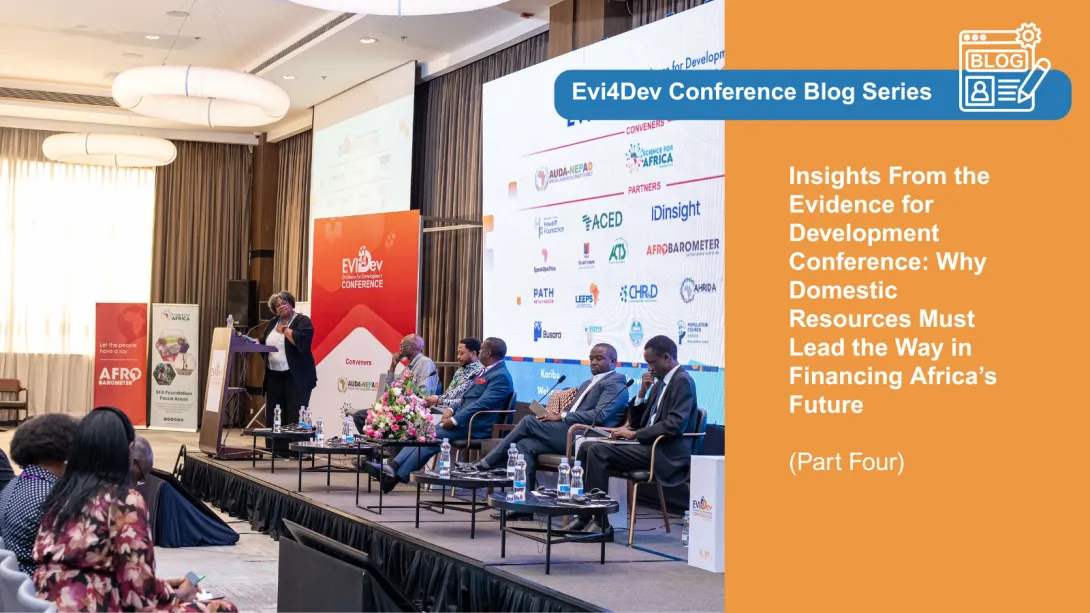
By Derick Ngaira
Africa’s development ambitions—from achieving universal healthcare (UHC) to building climate-resilient infrastructure—will remain elusive unless the continent focuses on domestic financing. At the Evidence for Development (Evi4Dev) Conference in May 2025, one of the most pressing conversations centred on how the continent can sustainably fund its own progress. There was consensus that the continent must rely less on external aid and loans, and more on homegrown solutions that optimise domestic resources.
The global development landscape is shifting. Donor exit, global crises, and changing geopolitics have exposed the vulnerability of Africa’s overreliance on foreign aid. But this challenge also presents an opportunity: to build stronger, more accountable domestic financial systems that respond directly to the continent’s needs. The future of Africa’s development lies not in what others give, but in what the continent can mobilise and manage.
One clear pathway is innovative resource mobilisation. Governments need to explore new revenue streams, including earmarked taxes for health, education, or climate adaptation. In countries like Rwanda and Ghana, for example, targeted levies on airline tickets or mobile money transactions have successfully funded public health and emergency programmes. These creative approaches should be scaled and adapted across the continent.
Public-private partnerships (PPPs) also offer tremendous untapped potential. When structured transparently and equitably, PPPs can unlock capital, expertise, and efficiencies from the private sector while allowing governments to retain strategic control to fund public goods. Infrastructure, energy, transport, and education can all benefit from well-designed collaborations that share risk and reward. However, strong governance is non-negotiable to avoid rent-seeking or elite capture.
Beyond mobilising funds, African governments must also rethink how money is spent. Far too often, public budgets are drained by inefficiency, duplication, and outright waste. Transforming government expenditures is not just about austerity—it’s about aligning spending with development impact. Emerging technologies, including artificial intelligence, can improve budget tracking, flag anomalies, and predict high-return investment areas. Meanwhile, decentralising budgets and giving more financial control to local governments can increase efficiency and community accountability, because local leaders are often better positioned to understand and respond to the specific needs, priorities, and contexts of their communities.
Strengthening the governance of public financial management systems is critical. Africa needs to modernise budget processes, ensure timely audits, and build institutions that are not only transparent but also responsive to changing economic realities. With climate change, pandemics, and digital disruption all reshaping the development landscape, Africa’s financial systems must be agile, data-driven, and future-proof.
The Evi4Dev Conference emphasised that sustainable development is not just about how much money Africa has—it’s about how wisely we use it. This means investing in sectors that generate long-term value: education, health, research, infrastructure, and green energy. It also means linking national development plans to realistic, well-managed budgets, and ensuring citizens see tangible outcomes from public spending.
Ultimately, to sustainably finance Africa’s development agenda, leaders should have the courage to make tough fiscal decisions, crackdown on corruption, and prioritise inclusive growth. Civil society, the media, and citizens have a role to play too: holding institutions accountable and demanding that public resources truly serve the public good.
Part 5 of the blog series will focus on the need to strengthening partnerships to realise development in Africa.

